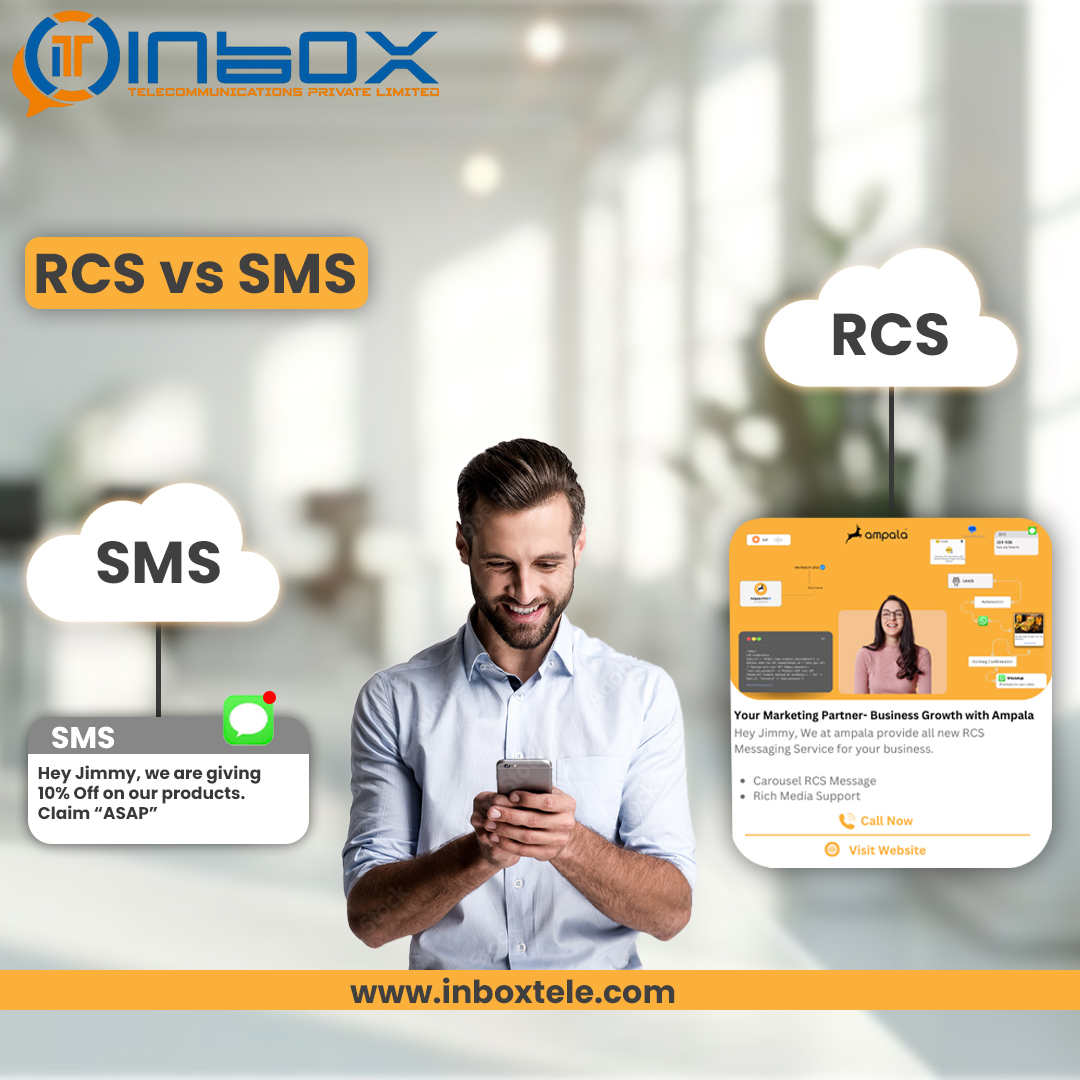
RCS vs SMS: What’s the Difference and Why It Matters for Business Messaging
When you get a text on your phone, it’s usually an SMS—that familiar, short message that pops up with plain text. But there’s a new messaging upgrade in town called RCS (Rich Communication Services), and it’s changing the way businesses connect with customers.
So, what’s the difference between RCS and SMS? And which one should your business be using?
Let’s break it down.
✅ What is SMS?
SMS (Short Message Service) is the original form of text messaging. It has been around since the early 90s and supports:
-
Plain text only
-
160-character limit
-
No images, videos, or buttons
-
No real-time read or typing indicators
It’s simple and works on nearly all mobile phones—smartphones or not.
✅ What is RCS?
RCS (Rich Communication Services) is the next generation of SMS. Think of it like SMS with superpowers. RCS lets businesses and users:
-
Send high-resolution images, carousels, and videos
-
Use buttons for quick replies or actions
-
Get read receipts and typing indicators
-
Use verified business profiles for trust and branding
RCS works inside the phone’s default messaging app (like Google Messages on Android), making it feel like chatting in WhatsApp or iMessage—but without needing a separate app.
💼 Why Should Businesses Care About RCS?
RCS transforms messaging into a rich, app-like experience—directly inside the inbox.
-
More Engagement: People are more likely to tap on buttons, swipe carousels, or play a video than read plain text.
-
Better Conversions: Visual storytelling and CTAs drive more actions (like purchases, signups, or bookings).
-
Stronger Trust: Verified sender profiles give confidence that the message is real, not spam.
⚠️ What Are the Limitations of RCS?
While RCS is powerful, it’s not yet supported on all devices and carriers—especially iPhones. It also requires internet access to function. But adoption is growing fast, especially across Android users.
🏁 Conclusion: SMS is Basic, RCS is the Future
SMS is still useful for simple, universal communication. But if you want to stand out, engage better, and deliver modern experiences, RCS is the future of business messaging.
If your customers are mostly Android users and your messaging strategy involves visuals, buttons, or interactive content—it’s time to explore RCS.
